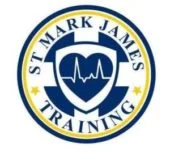Some occupations in Canada are very risky, specifically those that handle dangerous goods. Dangerous goods fall under the government’s controlled substances, meaning they have to be classified, and handling them is strictly regulated. Businesses that deal with the transportation of dangerous goods are required to train their employees in a Transportation of Dangerous Goods training program in Regina, a program that happens to be offered by us, Regina First Aid.
Unlike hazardous materials which are categorized according to six classes (according to the first six letters), dangerous goods have nine classifications: (1) explosives, (2) gases, (3) flammable liquids, (4) flammable solids, (5) oxidizing substances and organic peroxides, (6) toxic and infectious substances, (7) radioactive materials, (8) corrosive substances, and (9) miscellaneous products, substances, or organisms.
Click Here to Register for a on-line TDG Course.About Transportation of Dangerous Goods in Regina
The Transportation of Dangerous Goods program was created in partnership with Canada’s governments to reduce the risk of injury and damage to the workers handling the goods and the general public. Transportation is quite risky, because should an accident occur, the transporter is alone in managing the situation. We teach trainees about proper labeling and emergency response systems in a TDG course.
TDG training is offered by Regina First Aid as a classroom course and as an online course. Both courses have nine units or modules respectively. Short quizzes are given at the end of each unit or module. For the online course, students have to pass the module quiz before they can proceed to the next one.
Classroom TDG – this program is four hours long. It costs 49.99 dollars for nine units of training.
Online TDG – this program is three hours long, It costs cheaper, 29.99 dollars for nine modules of training.
To receive your certification, you have to have complete attendance and scores of 80 percent or higher on the final exam (credentialing exam). Certificates for TDG training do not expire nor does the certified trainee have to take refresher to keep the validity of his/her certificate. We do encourage trainees to retake the TDG course every few years for an update.
Getting started on training: Small Containers
If you work with dangerous goods, you will note that not all goods are transported in large containers. Small means of containment are containers with 450 liters of goods or less. When containers are small, their label can contain just four out of the 15 pieces of information on a full label: (1) shipping name, (2) technical name (if applicable), (3) UN number of the product. Labels have to be at least 100 mm on each side. Smaller containers can have labels reduced up to 30 mm per side; consequently, all symbols and text on the label must also be reduced. For these smaller labels, the UN number, shipping name, and label can be attached as a tag on the container.
